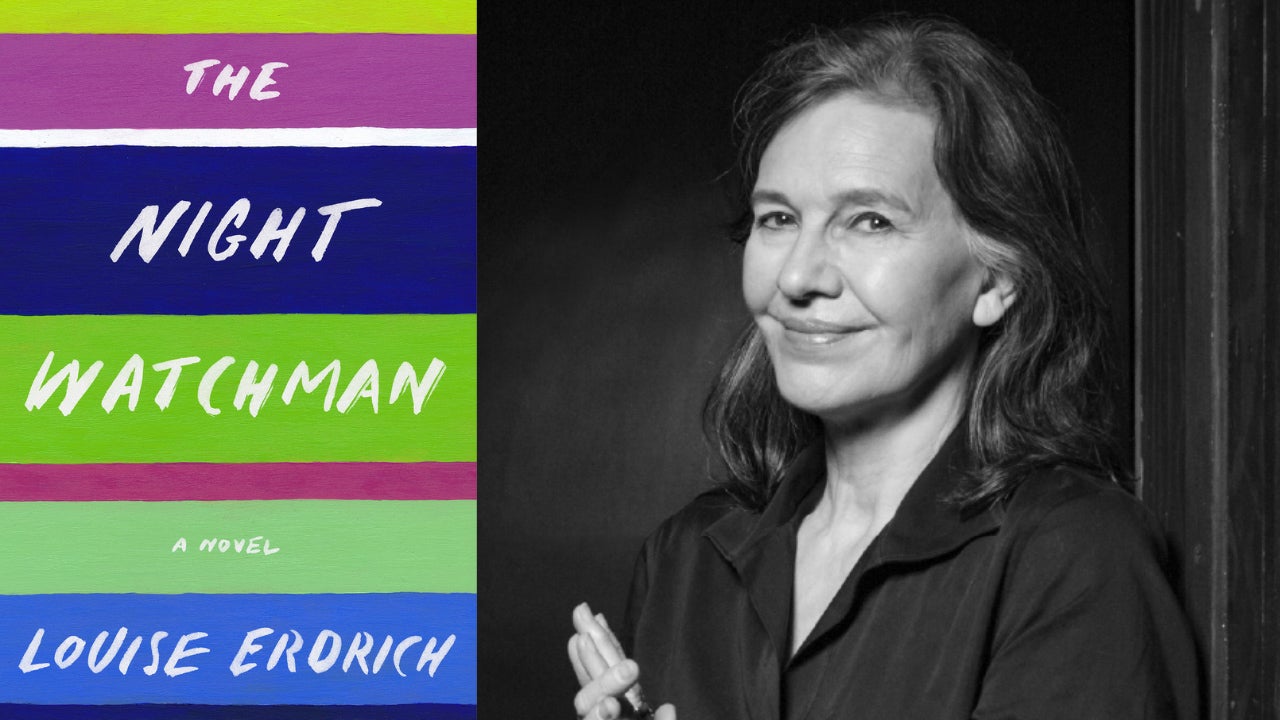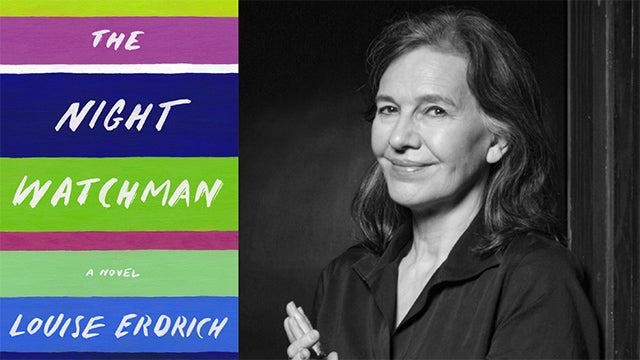On April 21, Aspen Words will announce the winner for the fourth annual Aspen Words Literary Prize, a $35,000 award recognizing a work of fiction that addresses a vital social issue. The diverse shortlist for the award includes three novels and two short story collections. While the jury works on choosing a winner, Aspen Words chatted with the nominees about their work and how they view their role as a writer in this cultural and political moment.
Louise Erdrich is the author of sixteen novels, volumes of poetry, children’s books, and a memoir of early motherhood. Her fiction has won the National Book Award, two National Book Critics Circle Awards, and has been a finalist for the Pulitzer Prize. The Night Watchman is based on the extraordinary life of Erdrich’s grandfather, who worked as a night watchman and carried the fight against Native dispossession from North Dakota all the way to Washington, DC. The novel explores themes of love and death and Native struggle with lightness and gravity and with the elegant prose, sly humor, and depth of feeling.

How do you view your role as a writer in this cultural and political moment, and why is the time right for your book?
It has taken me most of my adult life to understand my grandfather’s story. Pat Gourneau (Anishinaubay) had eighth grade government boarding school education, an omnivorous mind, a family to love, and courage. He was desperate and determined to save his people and what remains of our homeland from the 1950’s policy of termination. The Ojibwe word for reservation is ‘ishkonigan’ and means ‘the leftovers.’ But the land was and is precious. He was not about to let the government take it without a fight. We may have seen the beginning of the end of our democracy—or the beginning of the strengthening of our democracy. In the same way that my grandfather had to choose to fight for his people, we have to choose to fight for our democracy. He used the truth. He and the Turtle Mountain Tribal Council won the fight against termination with facts and with emotion. We can only win with truth and love.
What is the core tenet of your book’s philosophy?
The core tenets of the book’s philosophy can be summed up in a line from one of my grandfather’s letters. ‘Humility, sincerity, banana oil.’ That’s what he brought to argue his case with those in power. He threw everything at the problem—all he could think of—he made friends with everyone and in spite of exhaustion and tremendous odds he kept his sense of humor.
If you weren’t a writer what would you be?
After a visit to the North Dakota Job Service office in 1976, I learned that I was qualified to hoe sugarbeets, which I’d already done. I’d worked construction, waitressed, sold concessions, been a short-order cook, etc. I had a good education but hadn’t prepared to do anything but write. I decided that if I turned 30 and hadn’t published a book, I’d quit and go back to waitressing. I wrote incessantly and never gave up because I just kept thinking how much my feet used to hurt at the end of a shift. So, it was fate, or feet. There wasn’t a choice.
Which books have brought you hope or solace, or expanded your awareness over the last year?
I’m the owner of a small bookstore, or it owns me. Birchbark Books has an emphasis on Indigenous, anti-racist, and climate change works. I’ve read a lot of the literature that our customers ask for or books that I think they’d like. There has been a thrilling surge of Indigenous literature, poetry, memoir coming out this year. However, my solace has also been Stendahl—The Red and The Black, and The Charterhouse of Parma in an exhilarating translation by Richard Howard. I read Octavia Butler’s Xenogenesis trilogy, Louise Glück’s Faithful and Virtuous Night (many times, it is mysterious), Fire on the Mountain by Anita Desai, Vigdis Hjorth, Underland by Robert Mcfarlane, White Rage by Carol Anderson, lots of wonderful thrillers, Dennis Lehane, all of John Grisham and Donna Leon, poetry by Natalie Diaz, Sun Yung Shin, and Billie Ray Belcourt. At present, I’m reading Carol Anderson’s next book, The Second: Race and Guns in a Fatally Unequal America, and Stand Off: Standing Rock, the Bundy movement, and the American Story of Sacred Lands by Jacqueline Keeler.


